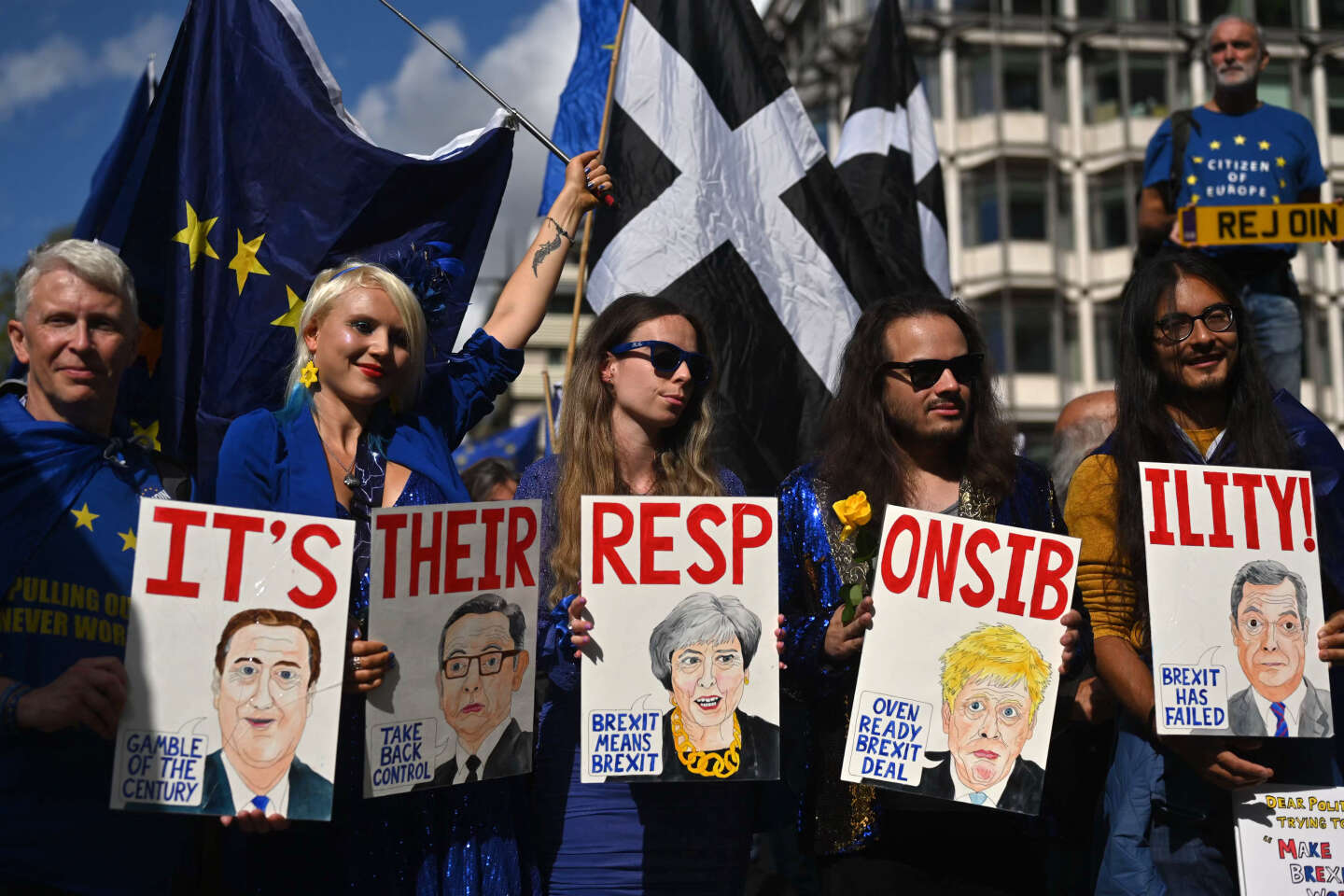


Some anniversaries are best forgotten. It is now four years after the United Kingdom's divorce from the European Union became official on January 31, 2020, and no one is in the mood to celebrate. Neither the Europeans, who have certainly seen a difficult partner move away, but have also weakened themselves in the eyes of the world; nor above all the British, over 60% of whom now recognize that they were wrong to vote for Brexit (which received 51.9% of votes) in the 2016 referendum.
Now is not the time for regrets, but rather for lessons to be learned, especially in the run-up to the European elections in June, where rhetoric comparable to that which led the UK to make its mistake is hard at work.
The British proponents of separating from the EU promised to "take back control" of the country's borders, economy and diplomacy. In each of these areas, the failure is clear and indisputable. Immigration to the UK has reached an all-time high, with a net rate of entries – 682,000 between June 2022 and June 2023 – that is twice as high as before Brexit.
It's a reality that Rishi Sunak's government has tried to hide by pointing fingers at the Channel's "boat people," who in reality represent a tiny fraction of these arrivals. The country's economy has been weakened by the slowdown in trade with the EU, caused by the return of customs red tape, and Brexit has worsened inflation and slowed investment.
As for London's place in the world, it has shrunk, despite a genuine dynamism in terms of aid to Ukraine. The return to sovereignty promised by Brexit's supporters has above all resulted in a stronger alignment with the United States. Rather than the supposed "liberation" from the European straightjacket, the UK has isolated itself, welcoming fewer European foreign students, increasing obstacles to tourism and to exchanges in every field. The lies spread by Boris Johnson, a great Brexit promoter, have only weakened age-old institutions and aggravated the Irish dilemma.
Illusion merchants
Set in stone and unchallenged by a Labour opposition, who seem unwilling to reopen a badly healed wound ahead of the general elections they hope to win this year, Brexit has calmed separatist temptations across Europe. French far-right leader Marine Le Pen has been trying to make people forget the time when she was enthusiastic about the British "no" to the EU, when she described it as heralding a "springtime of the peoples."
Yet while the demand to leave the Union is no longer in the spotlight, the successes of a far-right that thrives on nationalism, misleading protectionist promises and the short-sighted denunciation of European policies – in Hungary, Italy, France, Germany and Spain – have extended the mechanisms that led to Brexit. In France, the right-wing Les Républicains party's near-alignment on the rhetoric of Le Pen's Rassemblement National brings to mind the moment when former British Prime Minister David Cameron promised a referendum on Brexit for fear of elected members defecting from his party to the far-right.
As for the ever-present denunciations of the alleged "normative madness" of Brussels and of judges as "enemies of the people," this is exactly the kind of rhetoric that fueled Johnson's disingenuous speeches. Four years later, Brexit is more of a frightening boogeyman than a winning catchphrase. Yet the illusion merchants, who so effectively sold this fiasco to the British, have been operating more than ever in Europe.
